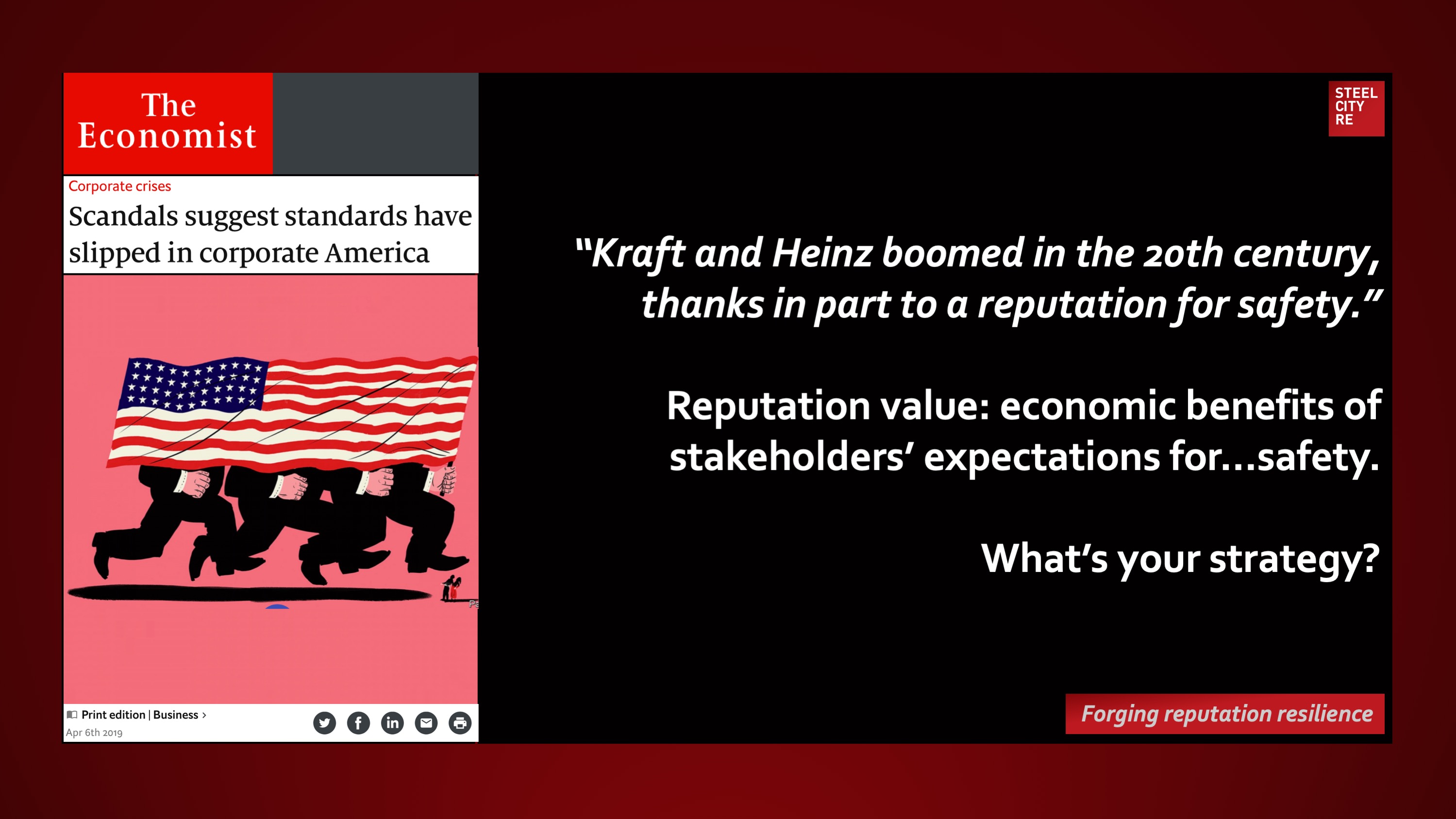“(C)ompetition…should act to discipline careless or badly behaved firms, because customers shun them. Kraft and Heinz boomed in the 20th century, thanks in part to a reputation for safety. Japanese car firms forced Detroit to raise its game in the 1980s. And today Netflix trounces the traditional cable TV firms which love to bamboozle customers.”
Economist
April 12, 2019
“Kraft and Heinz boomed in the 20th century, thanks in part to a reputation for safety.”
Reputation value: economic benefits of stakeholders’ expectations for features such as safety, as well as ethics, security, quality, innovation, and sustainability.
Reputations are valuable strategic intangible assets. Threats to these assets⏤ enterprise reputation risks, often mislabeled “brand risks” ⏤ need to be managed, and management needs to be overseen through reputation risk governance lest reputational damage or reputational harm result in long-tailed go-forward losses in economic value and/or political power. Because these intangible risks arise from the interplay of stakeholder expectation, experiences, and media amplification, parametric insurances for intangible asset risks, for reputational value, for reputational harm, and for reputation assurance help mitigate risk by telling a simple, convincing and completely credible story of quality reputation governance to stakeholders. This story telling effect is the expressive power of insurance complementing insurance’s better known instrumental power of indemnification.
Risk management, risk financing in insurance captives, and risk transfer through reputation insurances comprise the constituent elements of a comprehensive solution.
What’s your strategy?

